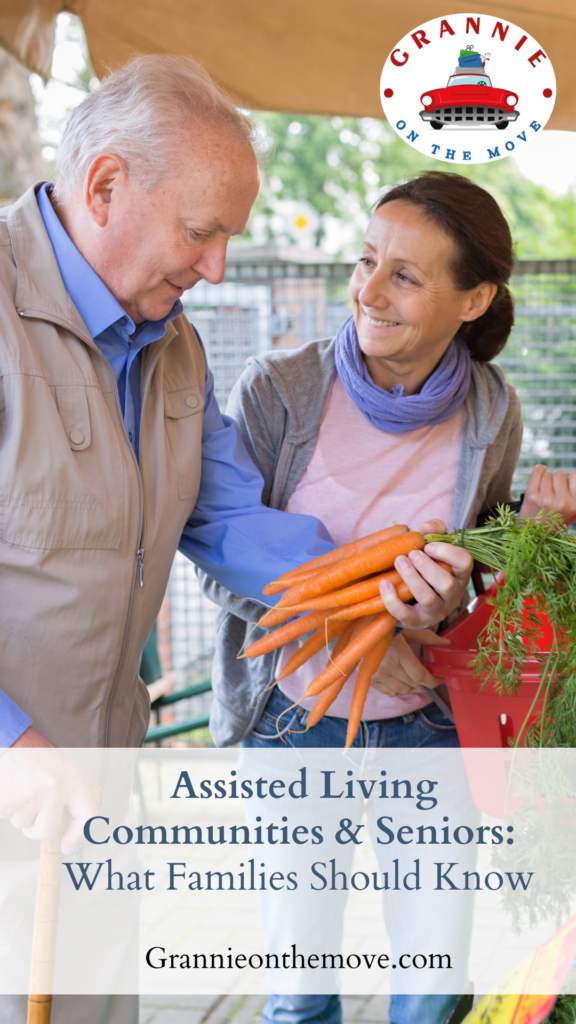Assisted living communities are a vital consideration for families with aging loved ones who require a certain level of care, but still value their independence.
These communities offer a unique blend of freedom and professional care, easing the burden on families while ensuring that seniors live a fulfilling and comfortable life. Understanding the specifics of what assisted living entails is crucial for families as they navigate the sometimes complex journey of senior care.
This article aims to provide that understanding and guide you through the essential aspects to consider when exploring assisted living communities for your loved ones.
What are Assisted Living Communities?
Assisted living communities are housing options designed for seniors who may need help with daily activities but don’t usually need intensive, round-the-clock medical care.
The average assisted living community typically offers a range of services, like meal preparation, medication management, laundry, housekeeping, and personal care assistance with activities of daily living (ADLs). ADLs include tasks such as bathing, dressing, and toileting.
However, considering different communities always vary, other levels of care and additional services may be offered as well.
Benefits of moving to an assisted living community
The main objective of assisted living is to provide older adults with a secure and home-like setting where they can maintain their independence and access help when needed.
Communities often offer various amenities to enhance residents’ quality of life, such as fitness centers, beauty salons, libraries, dining rooms, and social activities.
When it comes to assisted living communities, it’s important to remember that they’re not all created equal. With varying sizes, costs, and services offered, it’s crucial to do your research.
Some communities may offer specialized care for older people with particular health conditions or needs, while others may have a more general approach.
How Do Assisted Living Communities Differ from Skilled Nursing Facilities?
Assisted living communities are often confused with skilled nursing facilities, but significant differences exist.
A skilled nursing facility is an excellent option for individuals who require 24-hour medical care and supervision due to their medical conditions. Skilled nursing facilities provide a safe and secure environment for patients to receive necessary medical attention while minimizing risks associated with living alone.
While skilled nursing facilities may offer limited social opportunities, these restrictions are typically in place to prioritize the health and well-being of residents. It is a small trade-off for the peace of mind that comes with knowing your loved one is receiving proper care and attention.
On the other hand, assisted living communities offer a more balanced approach, providing care and support for everyday activities and daily tasks, while also promoting independence and social interaction.
Assisted living communities also tend to have a more home-like atmosphere compared toSkilled nursing facilities, which can feel more like hospital settings. It’s important to feel at home wherever you live, and that’s why assisted living communities are designed to give residents the freedom to personalize their space with their own furniture and belongings.
Specialized Services in Assisted Living Communities
It’s worth noting that some assisted living communities may offer specialized services or have secure wings dedicated to Alzheimer’s patients and other individuals experiencing memory loss and other forms of dementia. These setups can provide a higher level of care and supervision for residents with these specific needs.
However, while these communities can cater to seniors with memory-related conditions, they may not provide the same focused care and therapeutic interventions as memory care communities.
The average memory care community is designed specifically for those suffering from Alzheimer’s disease, dementia, and other forms of memory loss. They are equipped with 24-hour supervised care, structured activities, and safe, easy-to-navigate environments to enhance the residents’ quality of life and support cognitive decline.
For families considering assisted living for a loved one with memory loss, it is crucial to research thoroughly. Examine the specific type of care services provided, caregivers’ expertise, and each community’s environment. As well as the personal preferences of your beloved senior citizen! This will help you make an informed decision that will best serve the needs and enhance the quality of life of your loved ones.
Remember, transitioning to assisted living is a significant life change, and it’s important to involve your elderly loved one in decision-making. This can help them feel comfortable and happy in their new home.
Typical amenities
The majority of assisted living communities offer a variety of amenities and activities to improve the lifestyle and well-being of their residents. They provide common areas for socializing and programs to promote physical health.
Different fitness levels are catered to with group activities such as yoga classes, walking groups, and water aerobics. Cultural and educational programs may include book clubs, art classes, guest lectures, computer classes, and field trips. There may also be leisure and recreation activities like movie nights, bingo, card games, and themed parties. Personal services such as beauty salons, laundry services, barbershops, and spas may also be available.
Lastly, dining services offer meal options tailored to residents’ dietary needs and preferences. Touring various communities can give you and your aging parent or loved one a good idea of what the community itself is like, and the different amenities offered.
Cost of Assisted Living Communities
As with any senior living option, there are costs associated with assisted living communities. However, the price can vary significantly depending on location, services offered, and type of residence.
It can be overwhelming to make crucial decisions without knowing the full picture. That’s why it’s essential to take the time to thoroughly research and gain a complete understanding of all the expenses involved.
Medicare does not cover the cost of assisted living, but it may help with medical expenses associated with certain services provided within an assisted living community. Conversely, Medicaid may provide financial assistance depending on eligibility requirements and availability in your state.
In Idaho, Medicaid does not directly finance the cost of assisted living. However, a waiver program, the Home & Community Based Services (HCBS) Waiver, can aid in funding care-related expenses within an assisted living community and sometimes a skilled nursing facility. This waiver program focuses on the costs directly tied to personal care and support services provided in the community.
It’s important to note that while the HCBS Waiver aids in offsetting these care costs, it does not cover the expenses associated with room and board in an assisted living community. Thus, families and residents are typically responsible for these costs, including rent. Understanding the specifics of this waiver program is crucial in planning for the financial aspects of transitioning to an assisted living community.
Long term care insurance, veterans benefits, or private pay options may also be available to assist with the costs of assisted living, and other senior living options. It’s important to explore all possible avenues and plan accordingly for your loved one’s care needs.
Choosing the Right Assisted Living Community
Selecting the right assisted living community for your loved one is a decision not to be taken lightly. Here are some tips to guide you in this process:
- Identify Needs and Preferences: Start by listing out the needs and preferences of your loved one. This should include medical conditions, lifestyle preferences, and hobbies.
- Location Matters: If family engagement is essential, select a community near family members. This makes regular visits more feasible.
- Visit Multiple Communities: Take some time to visit several communities. This will give you a better understanding of the environment, staff, and the level of care provided.
- Look for Cleanliness and Safety: Hygiene and safety are paramount. Look for clean and safe environments. Check if handrails exist in the hallways, nonslip floors, good lighting, and call buttons.
- Assess Staff Attitude and Availability: Observe the staff. They should be friendly, respectful, and responsive. Also, check the staff-to-resident ratio.
- Partake in Activities: Participate in an activity during your visit. This will give you an idea of the social opportunities available.
- Talk to Residents: Speak to current residents about their experience.
- Understand Costs: Make sure to understand all the costs involved, including the ‘extras’ or anything that might be charged separately.
- Ask About Personal Care: How are individual needs catered to? For example, if your loved one has dietary restrictions, can the dining service accommodate these?
- Consider Future Needs: Remember that your loved one’s needs may change over time. Choose a community that can meet these changing needs.
Remember, the perfect community is where your loved one feels comfortable, safe, and happy.
Conclusion
Deciding on the best senior living community for an elderly loved one is a significant step, and it’s crucial that important factors, from the type of care needed to the costs involved, are thoroughly considered.
Assisted living communities can offer a blend of independence, personalized care, social interaction, and peace of mind for both the senior and the family caregivers. However, the journey to finding the perfect fit can be overwhelming.
That’s where Grannie On The Move comes in. With our senior care advisors, we guide you through this transition. We aim to simplify and personalize the process of finding the proper care, providing care placement assessments tailored to your loved one’s needs and preferences. Rather than navigating this complex journey alone, allow a trusted advisor to be there with you every step of the way.
Contact us at Grannie On The Move today, and let us assist you in making the most informed, compassionate decision possible for your loved one’s care, absolutely free for families


